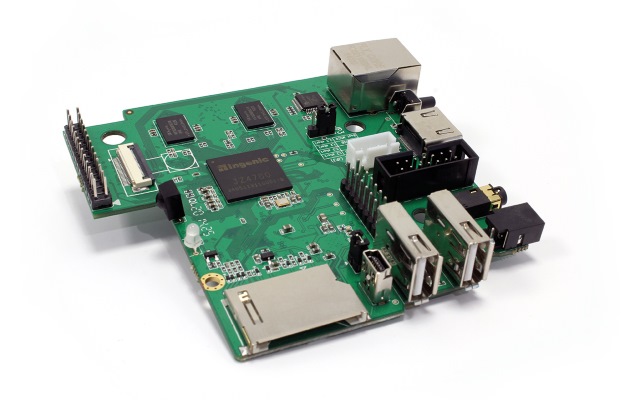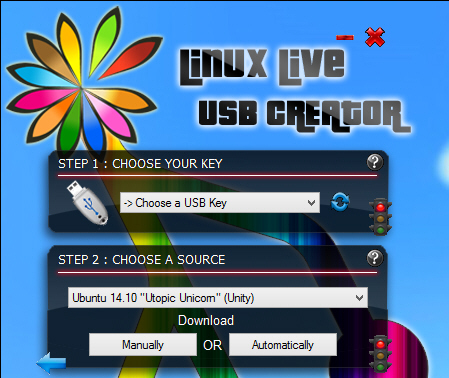
Linux Mint 17.1 'Rebecca' Xfce finally available -- download now for old computers
Linux Mint is on a roll lately; last year saw the official release of 17.1 'Rebecca', with the Mate and Cinnamon desktop environments (DEs). Both of the aforementioned environments are wonderful, but not everyone likes them. With Linux, there are many DEs to choose from, and each has its own fans.
A few days ago, the Mint Team released a KDE flavored version of 17.1, which made many people -- mostly with modern PCs -- happy. You see, as great as KDE is, it is not designed for older machines. Sure, Mate is arguably appropriate for a less-powerful machine, but there is yet another desktop environment that can better breathe new life into older computers -- Xfce. It is now available for Mint 17.1, featuring "Xfce 4.10, MDM 1.8, a Linux kernel 3.13 and an Ubuntu 14.04 package base".

Linux Mint 17.1 'Rebecca' KDE Edition is here -- Linux fans download it now!
The year 2014 proved wonderful for Linux; however, it was not the fabled 'Year of the Linux Desktop". Quite frankly, that year may never come, but that is OK. The open-source kernel is dominating the mobile space with Android, and that is arguably more important anyway.
Linux Mint in particular shone brightly last year, with wonderful releases and updates. Today, the distribution is continuing that trend in 2015 with the all-new Linux Mint 17.1 'Rebecca' KDE Edition. If you are a fan of KDE, your time is now -- get downloading!

Santa Claus has Linux in his sack -- PCLinuxOS 2014.12 is here
Christmas is almost here, and I am so excited! Yes, I am looking forward to getting gifts, but more importantly, I like giving them. When you reach a certain age, a gift becomes just another thing taking up space in your home. The gifts I really want -- processors, RAM, graphics cards -- are too expensive to ask friends and family for. Some nice underwear and socks will do me just fine -- my current pairs are holier than Christmas itself.
Luckily, Linux is free, and makes the perfect gift for the nerd in your life. Today, Santa Claus pulls Linux from his sack a bit early -- PCLinuxOS 2014.12 sees release, and it looks awesome. If you have never tried a Linux-based operating system before, this is a great choice.

Windows and Linux are the same thing
Want to know a secret? Linux-based operating systems and Windows are the same thing -- crazy right? I know! I was shocked to learn this myself, but it is true. They are both a means to run software, called programs. Sure, the types of programs available for each are not identical, but they could be. You see, if developers wanted to, they could write their software for both operating systems. Sadly, Linux has a very small user share in the home, so it is not always financially possible to do so.
Still though, they are the same thing. Well, the same thing to some people at least, admittedly not all. One particular type of software is available for both Windows and Linux-based operating systems, making them the same thing for some -- the web browser. Yes, many home users utilize web browsers, like Chrome and Firefox, for all of their computing needs. In this sense, Windows and Linux are simply a means for running a web browser, and it doesn't matter which OS they choose.

Countdown to Armageddon -- Google Earth API will be dead in 1 year!
In the grand scheme of things, we aren't far removed from a time when most people thought the Earth was flat. Yes, we went from thinking a boat could sail off of the edge of the world, to landing a spacecraft on a comet -- crazy, right?
When Google Earth was first released, it was a mind-boggling program. It allowed users to easily navigate a virtual Earth; a high-tech globe, if you will. While people take it for granted, the search-giant's offering remains wonderful. Unfortunately for developers, Google is killing the Earth API.

Red Hat Enterprise Linux (RHEL) 7.1 Beta available now!
Fans of Linux-based operating systems have been experiencing a deluge of quality releases in the last quarter of 2014 -- Ubuntu, Mint and Fedora to name a few. While I still think there are too many distros nowadays, the lesser-quality releases can be tuned-out as noise.
Today, one of the most significant enterprise Linux distributions, Red Hat Enterprise Linux (RHEL), reaches Beta for the upcoming 7.1 version.

Fedora 21 is here -- Linux fans get an early Christmas gift
There are so many Linux distributions nowadays -- arguably too many -- that it often feels like resources are being spread thin. After all, many Linux contributors don't get paid for their work -- they do it for love. With that said, it is a bit silly that this free labor is not being maximized to its potential. It is reminiscent of Android ROMs, where much of the work is duplicated, and everyone wants to offer their own for Internet fame. The Linux community has become like a vomit-bucket, where developers puke up distros that come and go; a trip to Distrowatch can make you dizzy.
Luckily, not all Linux distributions are fly-by-night operating systems; quite the contrary actually. There are still dependable distros like Ubuntu and Fedora, with the latter being my personal favorite (Linus Torvalds' favorite too). Today, Fedora 21 reaches final release. Yes, the wait has been long, but good things come to those that do so.

Macs and Linux come under attack as the threat landscape shifts
The latest monthly report from internet security specialist Doctor Web shows that whilst Windows and Android users have no cause for complacency, November saw substantial numbers of malicious programs aimed at Mac OS X and Linux platforms.
Trojans remain the most popular form of attack making up 8.7 percent of all malware detected. Trojan.InstallCore.12, which installs different adware, toolbars and browser extensions, ranks first. BackDoor.Andromeda.404, which downloads other malicious programs into an infected system when commanded to do so by intruders, ranks second.

Creator CI20 is an Android or Linux-powered Raspberry Pi competitor
Small is beautiful, and this is something that the Raspberry Pi demonstrates perfectly. But now there's a little competition. The Creator CI20 is a new diminutive micro-computer which offers more power than an existing Raspberry Pi, as well as a choice of operating systems -- Android or Linux.
The company behind the barebones computer is another UK chip manufacturer, Imagination, and at just $65, it's a perfect stocking stuffer. Or at least it would be if units were going to ship before January 2015. Like the Raspberry Pi, the Creator CI20 is a fully loaded board designed for use in all manner of DIY computing projects.

Do you smell the minty goodness? Linux Mint 17.1 'Rebecca' is finally here!
Christmas is coming, which means lots of festivities are about to happen. For me, however, the holiday is all about one thing -- smells. No, I'm not crazy, although many will disagree. What I mean to say is, the smells of Christmas resonate with me more than any other aspect. Of course, the smell of pine trees conjure images of decorated trees with gifts underneath, but don't forget the smells of cookies baking and grandma's perfume. All of these scents comes together to culminate Christmastime.
While it is not typically associated with the holiday, the smell of mint makes me as giddy as a child on Christmas morn. Why? It makes me think of Linux Mint, one of my favorite distros. Fans of the operating system are getting an early Christmas present, as the release of 17.1, "Rebecca", is here.

Linux Mint 17.1 'Rebecca' RC now available with either Cinnamon or Mate
The Linux kernel is constantly evolving and adapting; there is a reason it has seen great success on servers and mobile devices. On the desktop, however, Linux-based operating systems hold a paltry amount of usage share; it is almost non-existent in the grand scheme of things. With that said, many modern Linux distributions are very usable, easy to install, and have great support communities.
While I am a Fedora user, there is only one Linux distro that I suggest to people -- Linux Mint. Why? Well, it is a very easy-to-use operating system, and for people coming from Windows, it can look rather familiar. The people behind Mint are very accommodating too; they actually listen to users! Since it is based on Ubuntu, there are tons of packages available, for which you can use the popular APT package manager when needed. Today, a release candidate (RC) of Linux Mint 17.1 'Rebecca' becomes available -- download it now.

Microsoft makes .NET open source -- brings it to Linux and OS X
They say you can't teach an old dog new tricks, but boy oh boy, don't tell that to Satya Nadella. To many, Microsoft represents a dinosaur in technology, but as the fictional Jurassic Park showed us, dinosaurs can be brought back to life and thrive in modern times. In other words, even though Microsoft never died, its image was in decline, but it has been resurrected by doing and saying all the right things.
Today, Microsoft continues its upwards trajectory by announcing that .NET is going open source. While this isn't Microsoft's first open source rodeo, this is certainly the biggest. Hell, it is even bringing .NET to both Linux and OS X! Competitors beware; Microsoft is a Tyrannosaurus Rex and is showing its teeth.

GNOME Foundation to take on Groupon over use of 'Gnome' name -- begs users to finance the fight
While I'm no expert in copyright or trademark law, I am sure of one thing -- the GNOME desktop environment for Linux is awesome. It is a very intuitive interface, with great programs and a helpful community. The name "Gnome" is hardly unique though; its a common word that other companies use. As an example, Travelocity, an online travel site, uses a Gnome as a mascot.
It is a bit curious then, that the Gnome Foundation is upset with deal website Groupon for using the Gnome name. Groupon is not using it as a desktop environment; no, it is using it for a point-of-sale tablet and operating system; will people really confuse such a device with a Linux desktop environment?

LinuxLive USB Creator 2.90 arrives
Thibaut Lauzière has announced the release of LinuxLive USB Creator 2.90, his one-stop distro download and Live USB key builder.
As usual, there’s support for the latest distributions: CentOS 7.0, Ubuntu 14.10, Debian Live 7.6.0, KNOPPIX 7.4.2 and more. The program now offers OpenMandrivaLX, CDLinux, even ReactOS if you’re interested, and Lauzière says there’s "improved support for 64-bit variants" for whatever you choose.

Linux fans, Fedora 21 Beta 1 is here! Now featuring three flavors
Fedora is my favorite Linux distro, but more importantly, it is the operating system of choice for someone far more important than I. Who is this person? Linus Torvalds of course! Yes, the foul-mouthed father of Linux does his computing on Fedora, legitimizing the operating system as one of the best.
Unfortunately, Fedora has fallen a bit behind lately with a slow release schedule, frustrating some users. How bad is it? Well, Fedora 20 was released back in December of 2013. Today, finally, the first beta of Fedora 21 is released, and there is something unique about it; for the first time, there are three distinct versions (flavors) of the operating system. Is that a good or bad thing?
